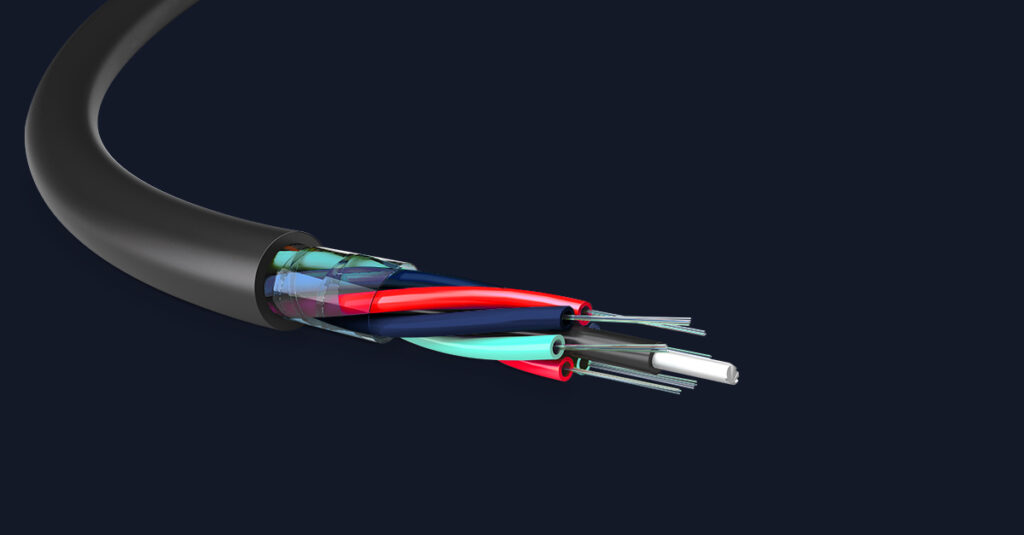
How Does Choosing Fiber Internet Benefit the Environment?
Is fiber green technology? Absolutely. Not only does fiber offer consumers the fastest possible internet speeds, but it’s also better for the environment than most copper broadband. It uses more sustainable materials, has a smaller carbon footprint and reduces waste and pollution. Given that the internet currently accounts for 3.7% of global carbon emissions, a figure projected to double by 2025, making fiber internet available to more users is good for the planet—as well as for people who want great internet service.
Fiber uses greener materials
Traditional internet cables are made out of copper wire, and the connection is transmitted along them as an electrical signal. All the copper inside these cables, though, had to be mined, which impacts the environment in a number of different ways. It can affect biodiversity, create additional waste and impact groundwater and has a larger carbon footprint.
Fiber optic cables, however, are made from glass and data is transmitted as beams of light. The silica (silicon dioxide) required for their production is one of the most abundant materials in the Earth’s crust—it’s commonly found in sand.
While there is still an environmental cost to making fiber cables, as there is to every human activity, it’s far lower than that of copper extraction. In fact, reducing the amount of metals like copper that we extract is one of the keys to limiting global warming this century. Nobody is calling on the world to make less fiber!
Fiber is more energy efficient
The European Commission calls fiber “the most energy efficient broadband technology” after a study in Germany compared it to a number of different cable options. At 50 Mbps, fiber connections emit 1.7 tons of CO2 per year, while the best copper option emits 2.7 tons. Switching to fiber, then, can instantly reduce your carbon emissions by 1 ton per year.
And that was at 50 Mbps speed. At faster speeds, like the gigabit services available now, the study found the potential CO2 savings to be even bigger. This is mostly because fiber cables are capable of transmitting data much longer distances than copper cables without intermediate devices like amplifiers—all of which require electrical power and cooling (which also requires electrical power) and thus increase emissions.
Also, a fiber broadband connection can reduce your home electrical use. Fiber connection is fast, so you’re able to download large files significantly faster. And the power needs are lower to transmit the broadband signal.
More fiber across America means less CO2 in our air
“Deploying fiber reduces carbon emissions by 34%. When you combine this with working from home, deploying fiber to all Americans will be the equivalent of taking 11 million cars off the road each year from a carbon footprint perspective.”
– Gary Bolton, President and CEO, Fiber Broadband Association
Note: Based on a 2022 report on the impact of fiber broadband
Fiber is built to last
Fiber optics are intended to be future-proof. The gigabit speeds currently offered by internet service providers are nowhere close to what fiber can theoretically offer. It’s easy to imagine a future where 10 Gbps broadband is common—and can be provided with the fiber cables being connected to homes right now.
Also, the fiber cables being installed now are designed to last for decades—and even have increased resiliency in major storms Once they’re laid, speed upgrades can be made without needing to replace the fiber.
Collectively, this means there’s very little long-term impact of existing fiber networks. Once they’re in, they’re in. Sure, there’s some maintenance required, but they won’t need to be replaced with new cable.
The indirect effects
It’s important to note, these are just some of the first-order, direct environmental benefits of fiber optic internet. There are all sorts of potential second-order, indirect benefits. For example:
- Because fiber optic cables can transmit much more data than copper cables, they need less plastic-based cladding materials to have the same bandwidth, meaning they’re less reliant on oil extraction.
- Less copper demand means less mining and impact to the environment.
As you can see, not only is fiber the future of the internet, but it helps promise a greener future for the internet. Directly and indirectly, fiber optic networks can help reduce the environmental cost of the internet.


Join the conversation